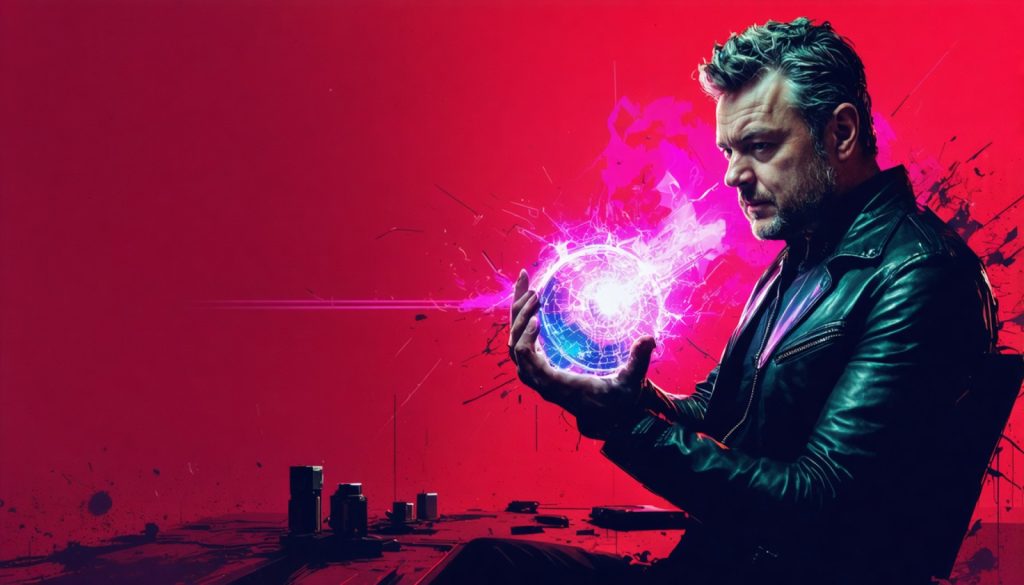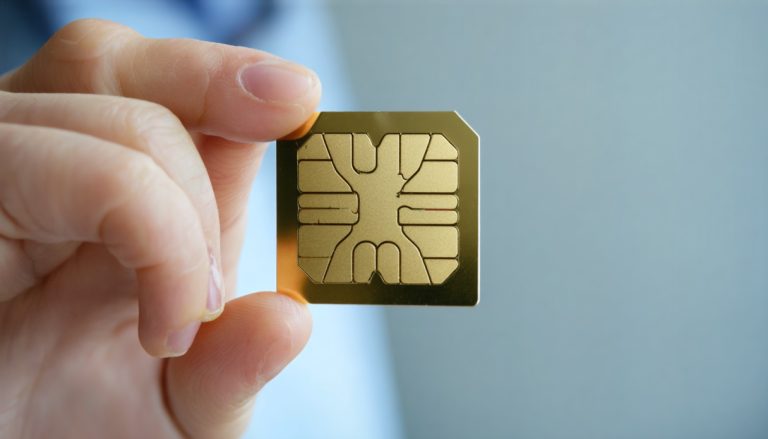
- Charlie Brooker’s “Black Mirror” introduces the Nubbin, blurring lines between fiction and reality, and exploring immersive tech implications.
- The Nubbin, though fictional, sparked intrigue through a leaked email and has a promotional website, highlighting real-world tech concerns.
- TCKR Systems, a key player in “Black Mirror,” symbolizes both the potential and perils of tech innovation as seen in episodes like “San Junipero” and “Bandersnatch.”
- The upcoming season seven features the return of Colin Ritman, promising new narratives that continue challenging viewers’ perceptions of technology.
- “Black Mirror” turns viewers into active participants in its storytelling, reflecting modern media’s shift towards interactive experiences.
- The series serves as a cautionary tale about tech advancements’ ethical implications on our future realities.
In the ever-evolving universe of Black Mirror, Charlie Brooker masterfully blurs the lines between eerily plausible fiction and reality, pushing boundaries with his latest creation—the Nubbin. A vivid piece of speculative tech, the Nubbin is poised to redefine not only the characters’ lives within the series but also our own perspectives on immersive technology.
Conceived as a marketing masterstroke, Brooker’s most ardent fans got a surprising Easter egg when a supposed confidential email announcing the Nubbin leaked. While not a real product, it served its purpose brilliantly — propelling viewers into a speculative frenzy over its implications.
Within the show’s universe, TCKR Systems emerges as the technology giant driving these transformative narratives. From the hauntingly beautiful digital afterlife of “San Junipero” to the unnerving autonomy granted in “Bandersnatch,” TCKR threads the sonorous pulse of Black Mirror’s dystopian heart. The tech is depicted as a delicate dance of innovation and danger, perfectly encapsulated in the Nubbin saga.
The allure of the Nubbin stretches beyond the screen, crafting an intricate web of intrigue. A live website introduces potential users to the Nubbin, complete with a chilling array of FAQs that mirror real-world concerns surrounding untested tech. This is complemented by a tantalizing LinkedIn page for TCKR Systems, further blurring the divide between fiction and reality.
Brooker’s ability to stoke the fires of imagination is unmatched. The leaked email’s whisper of assurance to “disregard” feels less like a mistake and more like an invite to explore hidden realms within Black Mirror. Awaited in the upcoming season seven is the extension of the narrative with episode teasers driving anticipation to a fever pitch. Especially alluring is the continuity thread of Colin Ritman, portrayed by Will Poulter, returning to guide viewers through yet another mind-bending journey in “Plaything.”
The series, lauded for its Emmy-winning storytelling, excels in seeding real-world reflections within its episodes. Through brilliantly conceived Easter eggs like the Nubbin, viewers are not just passive consumers but active participants in a grand narrative experiment. This reflects a profound understanding of how media consumption itself is evolving, demanding ever more immersive and interactive experiences.
As Black Mirror gears up for its seventh season, the echo of anticipation lies not in the virtual headpieces like the Nubbin but in the dialogue it opens about the potent—and potentially perilous—realities of tomorrow’s tech landscapes. Charlie Brooker’s vision continually prompts us to question: how far will reality intertwine with the digital dreams we weave?
In a world driven by innovation, let Brooker’s prophetic narratives be a cautionary beacon—a reminder of the ethical tightrope walked by the architects of our modern age. Embrace the thrill of the Nubbin, but heed its warning: not every technological advancement offers liberation; some, like the most thought-provoking episodes of Black Mirror, might just redefine our reality forever.
The Nubbin Unleashed: How Black Mirror’s Latest Fictional Tech Captivates and Cautions
The Intrigue of the Nubbin in Black Mirror
In the ever-evolving universe of Black Mirror, Charlie Brooker has once again captivated audiences with his latest speculative creation, the Nubbin. Although having emerged as a work of fiction within the series, the Nubbin pushes viewers to ponder the boundaries between fiction and potential reality.
Real-World Use Cases and Market Trajectories
While the Nubbin is fictional, the real world is not far behind in developing futuristic immersive technologies. Virtual reality headsets, augmented reality glasses, and brain-computer interfaces are a few examples of cutting-edge advancements in today’s tech landscape. Companies like Meta (formerly Facebook) and Neuralink are at the forefront, exploring how we interact with digital environments and even our own neural networks.
Market Forecasts:
– The AR and VR market is expected to reach $209.2 billion by 2022, spearheaded by heightened interest in both consumer and enterprise applications.
– Brain-computer interface technology is on a growth trajectory, expected to reach $3.85 billion by 2027.
Features, Specs & Pricing of Current Technologies
Fictional as it may be, understanding the landscape of existing tech gives insight into possible real-world variants:
– VR Headsets like the Oculus Quest 2 start at around $300 and offer full immersion with responsive controls and expansive gaming experiences.
– AR Glasses such as the Microsoft HoloLens 2 offer enterprise applications with prices starting at $3,500, highlighting the development potential for augmented experiences.
Industry Reviews & Comparisons
In today’s tech climate, Black Mirror’s exploration invites comparisons with existing devices:
– Oculus Quest 2 vs. HTC Vive Pro: Both offer immersive VR experiences, but the Quest 2 is praised for accessibility and price, while the Vive Pro is noted for superior visual quality.
– Neuralink vs. Kernel: Both companies represent early movers in brain-computer interfaces, focusing on different applications from health monitoring to cognitive enhancement.
Insightful Parallels and Ethical Cautions
Black Mirror not only depicts potential technological futures but serves as a platform for ethical consideration. Questions surrounding privacy, data security, and the psychological effects of such immersive experiences arise starkly against the backdrop of these advancements.
Actionable Recommendations
1. Stay Informed: Keep abreast of developments in AR, VR, and neural tech through platforms like TechCrunch and WIRED.
2. Evaluate Risks: Consider the privacy and security implications before adopting new technologies.
3. Engage Thoughtfully: Use shows like Black Mirror as a springboard for discussions about the ethical limits of technology.
The Potent Realities of Tomorrow’s Technology
Charlie Brooker’s Black Mirror does more than tell dystopian tales—it warns and inspires viewers to consider deeply the trajectory of modern technologies. The Nubbin, while fictional now, could inspire real-world innovation, bringing the fantasy of immersive technology closer to reality. However, viewers and consumers alike must ask how deeply we’re willing to intertwine these digital advances with our lives.



